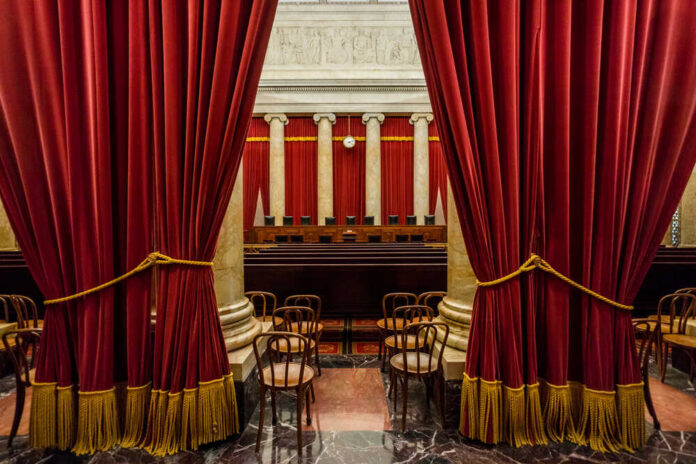
In an extraordinary show of unity, all nine Supreme Court Justices issued a joint statement last week, pushing back against recent leftist attacks on conservative justices and Senate Democrats’ attempts to impose new ethics oversight measures on the nation’s highest court. The statement came on the heels of mounting pressure from the political left, seeking to stir up controversy surrounding conservative Justices John Roberts, Clarence Thomas, and Neil Gorsuch.
The justices’ statement was accompanied by a letter from Chief Justice Roberts to Senate Judiciary Committee Chairman Richard Durbin (D-IL), in which he declined to attend a hearing that Senate Democrats hoped to hold. Roberts emphasized the rarity of such testimony, citing separation of powers concerns and the importance of preserving judicial independence.
It’s rare that all nine Supreme Court Justices agree on something. They unanimously issued a statement late last week “pushing back on attempts from Senate Democrats to implement new ethics oversight measures over the nation’s highest court.” https://t.co/6B9RbTMYhV
— Megan Redshaw (@Megan_Redshaw) May 1, 2023
The unanimous letter sought to “provide new clarity to the bar and to the public on how the Justices address certain recurring issues and also seeks to dispel some common misconceptions.” The Associated Press highlighted the message implicit in the letter: that the court unanimously rejects Democrat-proposed legislation aiming to impose the same ethics obligations on the justices as on all other federal judges.
In addition to addressing ethical concerns, the letter touched on recent threats against the justices, which escalated last year when a leftist reportedly attempted to assassinate up to three conservative justices. The statement called for attention to the increased threats faced by judges at all levels, noting that such dangers are magnified for Supreme Court Justices due to the high-profile matters they address.
Roberts’ refusal to testify before the Senate Judiciary Committee followed a series of reports by ProPublica and Politico detailing allegations against Justices Thomas and Gorsuch. These reports claimed failures to disclose luxury travel and property transactions, suggesting that the justices may have failed to meet the ethical standards expected of other federal judges. Durbin argued in his letter to Roberts that the Supreme Court’s “decade-long failure to address” such issues has contributed to a crisis of public confidence.
However, the justices’ statement did not directly address these allegations. Instead, it noted that the justices consult a wide variety of authorities to address specific ethical issues, including their colleagues and lawyers at the court. The statement also highlighted the importance of the Judicial Conference of the United States, which, while not supervising the Supreme Court, has contributed to the development of ethical rules and practices significant to the justices.
This rare, unified response from the Supreme Court Justices sends a clear message: they stand firm against attempts to undermine the court’s independence and impose partisan-driven oversight measures. As the nation’s highest court, the Supreme Court must maintain its impartiality and uphold the Constitution, free from politically motivated attacks.













